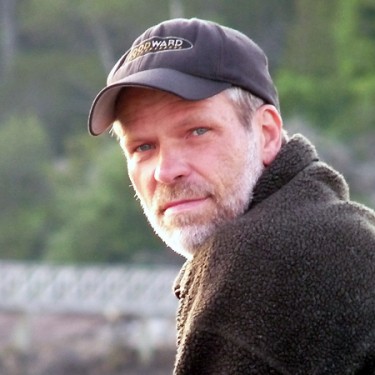
Richard B. Peterson, Ph.D.
Professor Emeritus
Location
Contact
As a teacher, I seek to create opportunities for students to actively engage in their own learning, through active discussion and debate in the classroom and by getting direct experience in the field, whether though volunteering on an organic farm, touring the local incinerator and seeing where their garbage goes, helping out at local food shelters, taking part in a work weekend at an Eco-village, or working with community organizations in Kenya to combat soil erosion. I have spent a lot of time in East and Central Africa and bring my experiences working with indigenous peoples and rainforest conservation into my courses. I live in Portland on the edge of the 85-acre Fore River Sanctuary, a place in which you can often find me hiking, skiing, or kayaking.
Credentials
Education
Expertise
Central Africa
Community-based conservation
East Africa
Ecological anthropology
Environmental ethics
Environmental justice
Research
Current research
Comparative assessment of forest conservation models in western Kenya; combating soil erosion through employing community-based soil conservation strategies in Nyando District, western Kenya; cultural and environmental impact assessment of micro-financing initiatives in Ubangi Region, Democratic Republic of Congo.
Selected publications
Peterson RB, Kapiyo RA, Campbell EM, and Nyabua PO. 2018. Gully Rehabilitation Trusts: Fighting Soil Erosion Through Community Participation in Western Kenya. Journal of Rural Studies 58: 67-81.
Peterson RB. 2018. Taking it to the City: Urban-Placed Pedagogies in Detroit and Roxbury. Journal of Environmental Studies and Sciences 8 (3): 326-342. https://doi-org.une.idm.oclc.org/10.1007/s13412-017-0455-4
Peterson, RB. 2017. Conversations in the Rainforest: Culture, Values, and the Environment in Central Africa, Revised and Updated Edition. Environmental Studies Faculty Books. 1. http://dune.une.edu/env_facbooks/1
Daley M, Grumbling O, and Peterson RB. 2014. Rescuing Economics From the Discipline: The Green Learning Community. Journal of Higher Education Theory and Practice 14 (3): 70-82.
Margles, S.W., R.B. Peterson, J. Ervin and B. Kaplin. 2010. Conservation without Borders: Building Communication and Action across Disciplinary Boundaries for Effective Conservation. Environmental Management, forthcoming.
Peterson, R.B., D. Russell, P. West, and J.P. Brosius. 2009. Seeing (and Doing) Conservation Through Cultural Lenses. Environmental Management, forthcoming. On-line publication currently available at http://www.springerlink.com/content/35571m662k487777/
Peterson, R.B. 2008. Of Micro-hydros and Mami Wata: Rural Development Meets Mythological Reality. In Sacred Waters: Arts for Mami Wata and Other Divinities in Africa and the Diaspora, H. Drewal, (ed), Indiana University Press.
Peterson, R.B. 2006. Why Mami Wata Matter: Local Considerations for Sustainable Waterpower Development Policy in Central Africa. Local Environment 11(1): 109-125.
Peterson, R.B. 2003. Central African Voices on the Human/Environment Relationship. In This Sacred Earth: Religion, Nature, Environment, 2nd Edition, R.S. Gottlieb, (ed), Routledge.
Peterson, R.B. 2000. Conversations in the Rainforest: Culture, Values, and the Environment in Central Africa. Westview Press.
Funded grants
U.S. Department of State, Bureau of Educational and Cultural Affairs, Fulbright Scholar Program, Scholar-in-Residence Grant, 2010.
Research interests
Integrating indigenous ecological and cultural knowledge into development and conservation; community-based conservation; impacts of war on conservation and land use; human immigration into rainforests; community-based soil conservation